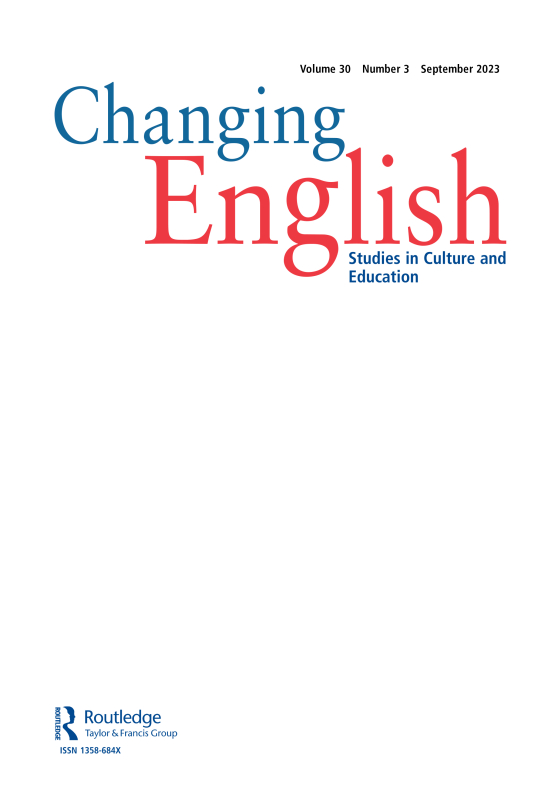Submit a Manuscript to the Journal
Changing English
For a Special Issue on
A Close Writing Playbook: Coupling Creative Writing and Close Reading Practices
Manuscript deadline
31 July 2024

Special Issue Editor(s)
Michael Lockett,
Center for Integrative Studies in the Arts and Humanities, Michigan State University
[email protected]
Scott Jarvie,
Department of English and Comparative Literature, San Jose State University
[email protected]
A Close Writing Playbook: Coupling Creative Writing and Close Reading Practices
This special issue of Changing English is for those contending with the compound challenge of helping students develop both writing and critical reading skills, especially secondary language arts or English teachers and post-secondary English educators. What makes the issue distinct is its emphasis on the relation between those skills. We are interested in first-person narratives of innovative writing/reading pedagogies that bolster students’ capacities for both written composition and literary analysis, a combinatory approach we theorise as close writing.
In our work as educators, we increasingly see pedagogical approaches that focus on expository writing forms—from university writing programmes to the Common Core curricula of US K-12 classrooms—in keeping with a transactional approach best suited to preparing students for their future careers. Such a neoliberal approach, much research has shown, narrows curricular experience towards professional ends, in the process reifying existing racial, gendered and other inequities. Close writing aims to move students beyond a conception of reading as mere transaction and technology (an issue particularly urgent with the rise of sophisticated AI chatbots), while pushing writing pedagogy past the development of expository prose. Instead, this approach frames writing as an analytic practice which aids both students’ capacities as writers and, importantly, their development as critical readers. At its best, we find close writing positions students in an exploratory, experimental stance in relation to composition, one that allows for the analytic aims of close reading in addition to different kinds of learning – including the kinds of careful and informed attention needed to make our world more livable.
We’re interested in classroom writing activities that ask students to carefully and creatively attend to language use, particularly those that couple writing with reading and position them together as critical and aesthetic practices. We’re also interested in the ways to theorise such practices and how you position them in relation to your particular curricular context. Each paper in the issue will present a different close writing practice along with a narrative about its development and classroom applications, plus a theoretical frame to situate its use and implications. If you would like to contribute to this special issue, please submit a paper that explores your practical experience with a close writing activity and provides readers with a sound theoretical basis for these approaches.
Looking to Publish your Research?
Find out how to publish your research open access with Taylor & Francis Group.
Choose open accessSubmission Instructions
- 4-6000 words
- papers should be theorised accounts of practice
- initial submissions to be emailed to the guest editors
- expected publication: March 2025